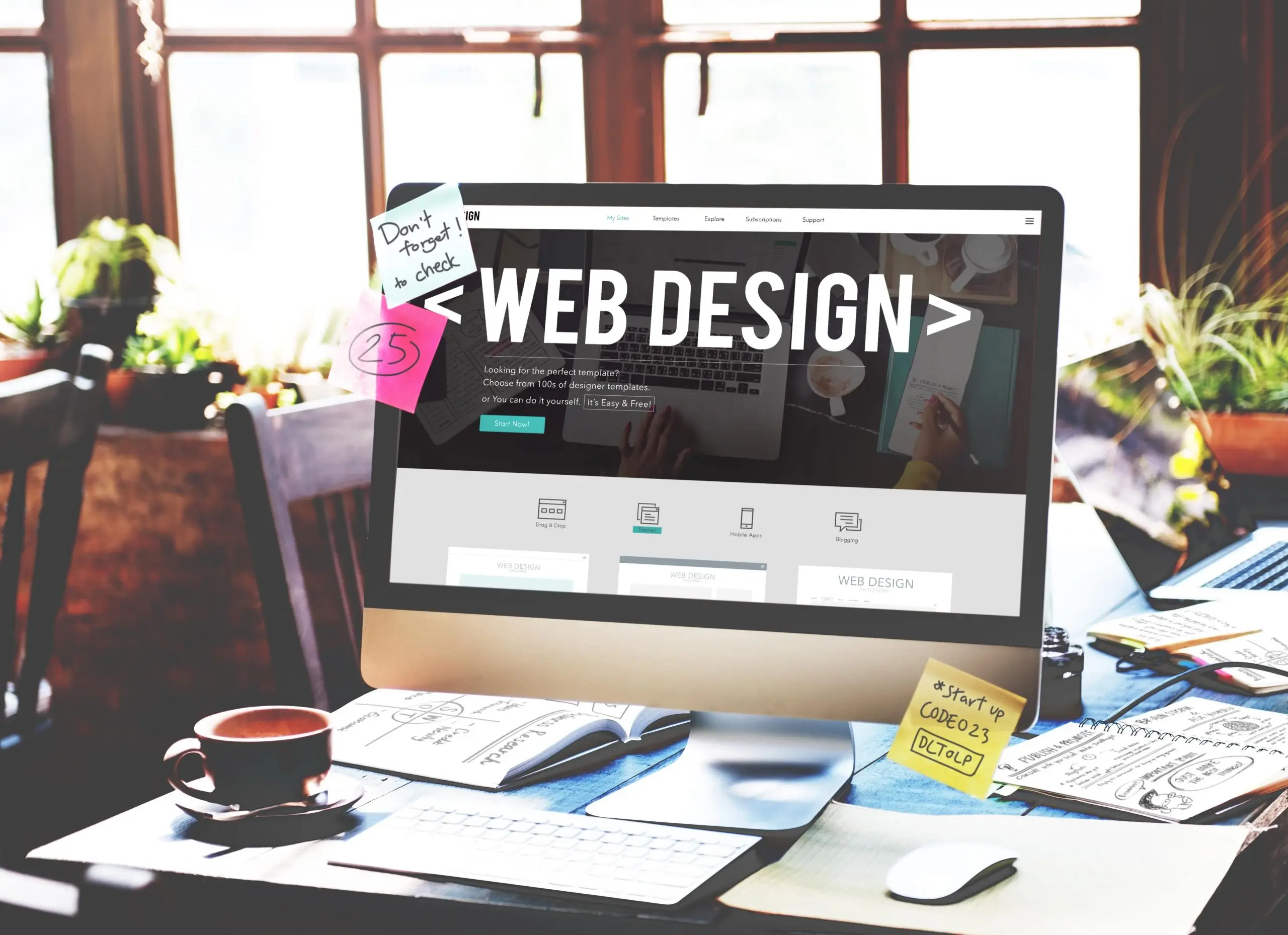Why Website Design Matters to Your Business
Your website is the very first thing people see when they learn about your business online. It's not just an online shopfront; it's often the initial impression your brand gives to potential customers. For this reason, website design matters. An organized, visually pleasing, and easy-to-use website can make all the difference in whether customers linger, browse, and become paying clients.

Why is Web Design Important?
Website design does more than look pretty; it's the foundation of how your brand feels and how well it gets results. Here are 8 strong reasons why Instant Web Makers, a seasoned web development company in California thinks website design matters for your business:
1. First Impressions Matter
When people arrive at your website, they immediately make a judgment about your company. That's why web design is important: a clean, contemporary design builds trust, while cluttered or old-school designs will drive them away.
2. Establishes Credibility and Trust
Shoppers connect quality design with credibility. Website design is significant because it establishes trust and makes people feel comfortable choosing your products or services.
3. Enhances User Experience (UX)
A fluid, intuitive experience is what keeps humans engaged. That is why the design of a website is important; it lets users quickly find things, navigate with ease, and have a pleasant experience.
4. Increases Search Engine Rankings
Google favors mobile-responsive, fast-loading, and well-organized sites. A good design directly enhances search result visibility.
5. Adds Mobile Responsiveness
With the majority of users accessing websites on their smartphones, having a responsive design is essential. This is one of the most obvious examples of how website design plays a role in delivering customers' expectations in the present.
6. Encourages Conversions
Proper design steers users towards action, whether that be purchasing, reserving a service, or completing a form. Web design converts visitors into buyers.
7. Supports Brand Identity
Consistency in color, typography, and layout reinforces your brand message. Professionalism is signaled, and your brand is made to stand out online.
8. Provides You with a Competitive Edge
Your competitors are spending money on web design. If your site looks dated, visitors will gravitate to a more attractive version. A good website design helps you keep ahead of the competition in a saturated market.

How Website Design Benefits User Experience?
Beyond aesthetics, the design of a website plays a critical role in usability. Imagine walking into a store where the aisles are cluttered, and it’s hard to find what you’re looking for; that’s exactly how users feel on a poorly designed site. That’s why the design of a website is important: it ensures visitors can easily navigate, find information, and take action.
A solid web design targets:
- Simple navigation that allows users to find what they're looking for quickly.
- Mobile responsiveness to provide an unimpaired experience across all devices.
- Quick loading speed to keep visitors interested rather than annoyed.
- Simple calls-to-action (CTAs) that drive users toward a purchase or contact.
Why Website Design Matters to SEO?
Most companies ignore how much web design affects search engine optimization. But the reality is, the importance of website design is directly related to your capability to rank on Google and other search engines.
Here's why website design matters for SEO:
Site Structure is Important – A tidy, well-organized layout aids search engines in crawling and indexing your pages quickly. That's why the design of a website important, it has a direct impact on how accessible your content is online.
Mobile Friendliness – Google favors mobile-friendly sites. If your layout is not responsive, you'll lose rankings as well as potential clients.
Loading Speed – People (and search engines) do not like slow websites. An effective website design loads quickly, which enhances SEO performance and maintains users' interest, and consumes fewer resources. If you’d like to explore this angle further, check out our insights on sustainable web practices that reduce your digital carbon footprint.
User Experience & Engagement – Search engines favor websites that people spend time on. If your design is clear, intuitive, and visually attractive, it lowers bounce rates and increases ranking signals. For a deeper dive into combining design and SEO effectively, don’t miss our article on smart SEO web design for building sites that rank.
On-Page Optimization – Things such as headings, layout, and visuals all stem from design. Website design creates the structure for well-optimized content.
Basically, the significance of website design goes far beyond how things look. A well-planned, SEO-conducive design makes your company not only appealing to browsers but also visible in search results.

What Happens If Website Design is done poorly?
While we’ve already explored why website design is important, it’s equally important to understand the consequences of poor design. A badly designed website can damage your business in several ways. Here are five key disadvantages:
1. Poor First Impressions
First impressions last. If your site appears dated, cluttered, or amateurish, visitors will be gone in seconds. This quite clearly demonstrates why web design is important; it establishes the tone for your brand image from the beginning.
2. Loss of Credibility and Trust
The importance of web design reveals itself when you consider just how much it influences credibility. A poorly organized site can lead people to question your authenticity, and they will go to competitors that have a cleaner presence.
3. Bad User Experience
When navigation is unclear or pages take forever to load, visitors have no patience. This is why website design matters—it keeps users from having a glitch, frustrating experience. Bad design only pushes them away.
4. Bad Impact on SEO
Search engines don't reward sites that are difficult to use, slow, or non-mobile-friendly. This illustrates why website design matters for SEO; without a solid foundation, you're at risk of falling behind in rankings and losing valuable traffic.
5. Lower Conversion Rates
By the end of the day, a poorly designed site won't convert visitors to leads or customers. That's precisely why website design matters; it nudges users toward action, and bad design shoves them away.
Final thoughts
Your website is more than an address online; it's usually the first and most enduring contact between you and your customers. Website design is the online handshake that has the potential to open or close the door. Great design shares your story, communicates your values, and forms connections that extend past a single click. Bad design, however, can quietly lose you opportunities without you even knowing it. If you desire your company to succeed online, investing in careful, professional design is not something you can do; it's something you must do. Work with Instant Web Makers, the established web design agency California, and we will assist you in reworking your website into one of your strongest business tools. If you’re unsure how to choose the right partner, we’ve created a detailed guide on what to look for when choosing a web design agency to help you make the best decision.

